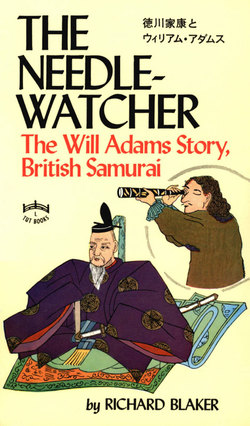Читать книгу Needle-Watcher - Richard Blaker - Страница 30
На сайте Литреса книга снята с продажи.
ОглавлениеCHAPTER XXI
SANTVOORT, set upon the way of it by the sheet of paper and the point of lead that Adams had given him, compiled a price-list. Guided by this, Adams one day brought home some fruit and wine to which Magome replied on the following day with more fruit and more wine. Santvoort dined with them and it passed unnoticed, till the evening was nearly done, that neither he nor Adams nor Magome had been quite dumb. Words strung themselves together in questions and answers and comments till the Englishman and the Dutchman were aware that a great war was tearing at the country and that Mitsu was away with his lord, fighting it. Of the issue Magome seemed to be in very little doubt.
"When?" Adams and Santvoort both asked him; for it had occurred to them both that they were still waiting for something to happen, and the something it now seemed must be the end of this war.
Magome shrugged his shoulders as the girls came in. He did not know.
Santvoort moved to go, but Magome waved him to his heels again. There was no hurry; he, himself, with a lantern, would see him to his home next door.
The girls took no part in the skeleton of conversation which Magome, after laying a finger to his lips, diverted from the subject of the war to the cargo still sealed into the hold of the Liefde. He asked if it contained swords or firearms or crockery or clothes or money. He drifted from their answers into a doze.
The girls sat away from them, sewing; and the Dutchman and the Englishman fell into a quiet conversation of their own.
"They are a long way off, Will," Santvoort said. "In my house it is different. I'm married."
"Married?" said Adams, his eyes startled away from their contemplation of Bukuni.
"Aye," said Santvoort. "Three days ago. It must be that I'm married. The family approves—it's the tallest of them, the one that was trouncing the little boy the other day when you were there. A fine woman, Will. Fine. A daughter, I should think. Anyhow, the old man made a big speech three days ago when they were all present—she, too, very solemn and shy, smiling at me. We'd been talking together about the place, she and I; and I suppose the old man had come to conclusions. He wasn't far wrong. So they made a sort of festival for us, with all the family mustered, and cakes and things set out and special dishes for us two. All very solemn, and the old man asked me something very carefully and I said aye, it would be well. And I suppose it means that I'm married. Don't you? They've given us the room at the end of the place. The old man rigged it up with bits of scantling from next door, and paper."
Adams was puzzled. Marriage had meant more to him than that, and it meant more still. It had meant, in fine, and in the perspective of jobs and domestic interludes, a burden. It had meant other things as well; but those things had, although they had varied the burden as to its content, left it, for all its variations, a burden.
Marriage had, in short, changed him. To Santvoort it appeared to furnish only a topic that was almost casual. Santvoort was not changed, and he was not burdened.
"Why didn't you ask me to come, Melchior?" Adams asked.
"How was I to know what was happening?" asked Santvoort. "When she stepped out and up to me with the dishes and looked up smiling prettily, and the old man talked, I thought it might be a sort of troth-taking. I saw nothing against it. It was only when the room was given to us that I saw it was a marriage. And I still saw nothing against it. But it was too late to make a guest of you. Well, I see nothing against it now."
"If it is a marriage," said Adams doubtfully.
"It's a marriage right enough," said Santvoort. "There have been other things going on. Neighbours have come in and grinned at me and said things. And the old man has put things up on the posts; tickets and flags and signs. And we've all been into town to the notary and I gave him my name. It's a marriage right enough."
"But you saw me yesterday," said Adams. "You could have told me as we went to buy my wine."
